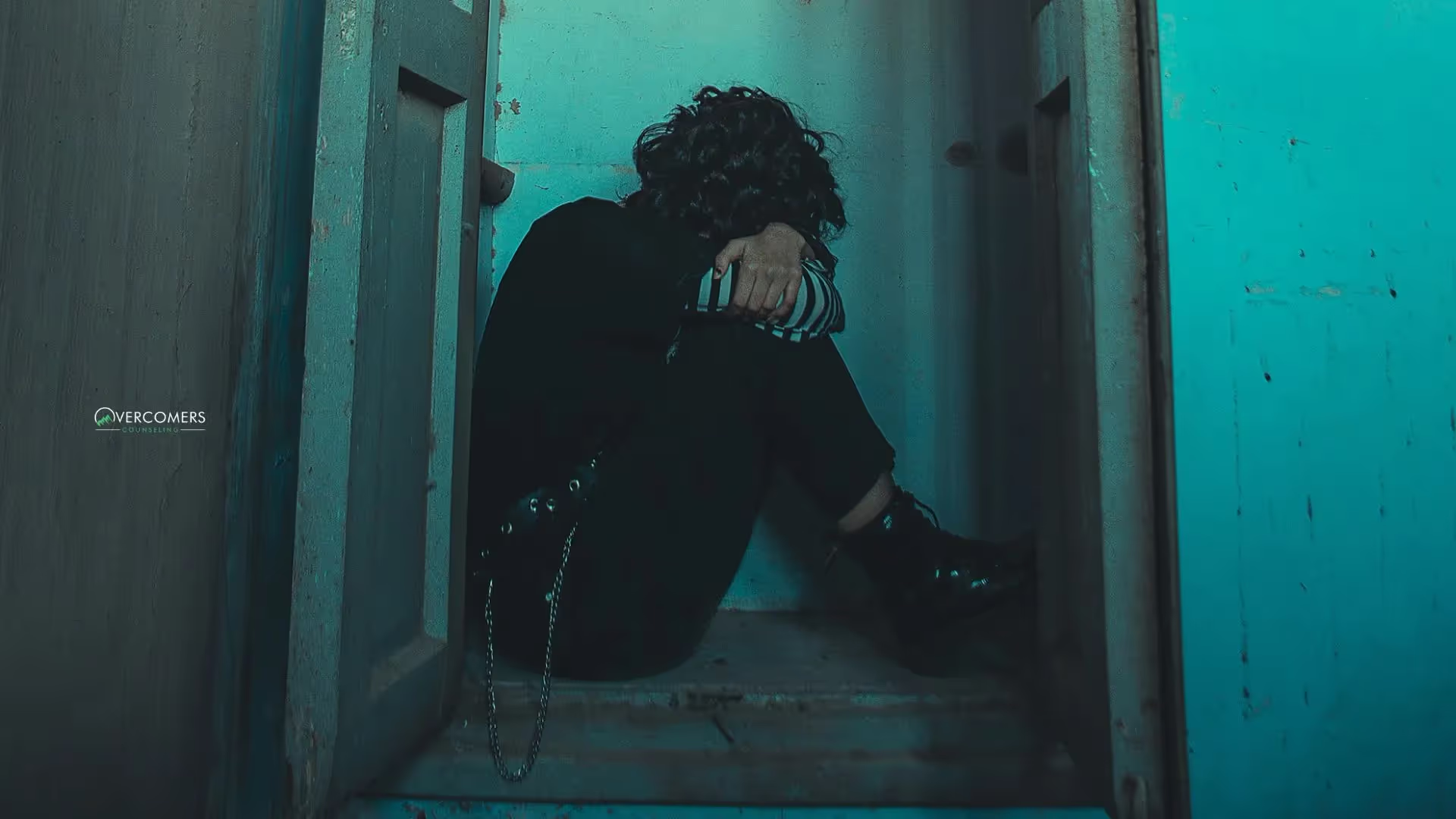The loss of a loved one or major life transitions evokes an intense feeling of grief which can be overwhelming, complex, and painful. In order to avoid or...

The loss of a loved one or major life transitions evokes an intense feeling of grief which can be overwhelming, complex, and painful.
In order to avoid or cope with this pain, some may change location or absorb themselves with work; others may cry.
Some others may also turn to substance use as a way to cope.
There are various ways grief can lead to addiction: here are a few.
For one, grief can fuel addictive behaviors when the griever refuses to come to terms with their loss and deal with the grief.
Losing someone we love can be extremely painful; however, denying this pain or trying to hide our grief will only worsen the feeling over time.
Also, unhealthy coping mechanisms, including substance use, impulsive spending, risk-taking behaviors, and adopting an unhealthy relationship with food, can make it difficult to grieve properly and elongate your healing journey.
Besides, these unhealthy coping mechanisms can provide a temporary high and relief which can be addicting.
Similarly, people with a history of addiction are at an increased risk of developing addictive behaviors.
If this is you, you must make a conscious effort to get grief support to ensure you don't relapse and heal properly.
Consider this overview to learn five ways grief can lead to addiction.
One of the ways grief can lead to addiction is when a person experiencing loss refuses to acknowledge their loss or come to terms with their feelings of grief.
Grief can be a devastating experience.
We feel it at our lowest times and in our darkest moments.
It can be saddening and painful, and our denial of how deeply in pain we are can be intense.
This denial often leads to avoidance, and many grievers find it challenging to get past this stage of grief.
Likewise, the onset of a grief wave can sometimes be uncomfortable, unpleasant, and filled with painful memories, thoughts, and sensations.
For many people, this can be difficult to handle.
Intentionally or unintentionally, a griever may push away and avoid feelings of grief.
Sadly, this doesn't get rid of grief.
When feelings of grief are left untouched, it is typical for grieving people to find ways to cope with or suppress their emotions.
The griever may engage in unhealthy habits like drinking, gaming, and gambling in order to find temporary comfort and distraction.
However, when these unhealthy habits become repetitive, they can easily lead to an addiction.

One of the ways grief can lead to addiction is when a griever adapts unhealthy coping mechanisms.
Although there's no "right" way to grieve that applies to everyone, some common unhealthy ways to cope present themselves when a person experiences loss.
One of those unhealthy coping mechanisms often includes risk-taking behavior.
This is when a griever acts out without thoughts of the outcome or consequences of their behavior.
A griever may develop a risk-taking behavior due to the sense of emptiness, anxiety, or inability to tolerate emotions that comes with grief.
Also, a griever may develop an unhealthy relationship with food.
Over or under-eating is a common unhealthy coping mechanism that occurs when a griever tries to use food or lack of it to numb their feelings.
This can, however, lead to eating disorders, depression, low self-esteem, and affect mental and physical health, which will, in turn, slow down the healing journey.
Another unhealthy coping mechanism is impulsive spending.
A griever might engage in compulsive and impulsive spending to dampen sad thoughts, feel better about themselves and temporarily get rid of self-doubt.
However, this often leads to severe financial problems, shopping addiction, and the inability to manage finances.

Experiencing a significant loss often changes one's view and perspective of life.
Grief often encompasses disorientation, anger, sadness, and other intense painful emotions, making it difficult to adapt alone and live without the lost loved one.
During this period, substances can quickly become a replacement for lost loved ones.
Therefore, one of the ways grief can lead to addiction is when we try to replace the lost loved one with drugs and alcohol.
Substances such as drugs and alcohol can provide a temporary feeling of ease and escape from reality and everyday life.
People who experience loneliness and emptiness as they grieve are likely to resort to substances to deal with negative emotions and loneliness.
Also, people who are widowed or lack a support system are at increased risk of turning to drugs and alcohol to find comfort.
Dealing with grief can be challenging and even more so when a griever lacks the needed support to cope.
Unfortunately, finding solace in the relief via drug and alcohol use over and over again leads to an unhealthy relationship with substances; this often leads to addiction.
One of the ways grief can lead to addiction is when the griever with a history of addiction relapses to old ways.
While it's essential to stay sober throughout the grief-healing process, people with a history of substance use or other addictions may find it difficult to cope with losing a loved one and may eventually relapse into old habits.
Many factors can trigger a relapse while grieving, one of which is hiding from the feelings of grief.
In truth, grief can be unbearable, and it often comes with overwhelming and intense emotions. However, it's essential to face the feelings of grief in order to heal.
Also, isolating from loved ones can trigger a relapse into old addiction habits.
Shutting out friends and families can increase loneliness, stress levels, and depression, which can lead to a return to unhealthy habits in order to cope.
Going through grief with a history of addiction is never easy.
However, by permitting yourself to feel, spending quality time with loved ones, asking for help, avoiding triggers, setting new goals, and sticking to helpful treatment plans, you can grieve and heal wholly without relapsing to old habits.
Going through a traumatic loss or losing a loved one in a traumatic way can intensify the complex feelings of grief and fuel addictive behaviors.
Grief can lead to addiction when an individual has unresolved trauma, leading to complicated grief.
Traumatic circumstances can include surviving a natural disaster, witnessing an assault or crime, losing a loved one, surviving assault and abuse, or military combat.
These traumatic experiences can lead to the inability to grieve properly as the griever may face several difficulties during their grieving journey and becomes susceptible to unhealthy coping mechanisms.
Signs a person has unresolved trauma and grief can include poor hygiene, erratic sleep schedule, mood swings, avoidance behaviors, and chronic pain resulting from emotional trauma.
When addiction develops as a result of untreated trauma and grief, it can lead to an unhealthy cycle that can affect one's mental, emotional, and physical health.
Thus, each issue has to be addressed individually with the help of a mental health professional, as they all fuel one another.
Grief and addiction can form a self-perpetuating cycle that can be difficult to break.
While grief can be a painful experience, it is important to grieve properly and get needed grief support so as to avoid falling into addictive behaviors.
There are many ways grief can lead to addiction, but here are a few: Avoiding feelings of grief, replacing the lost loved one with substance use, adopting unhealthy coping mechanisms, having a history of addiction, and experiencing trauma.
https://wellnessretreatrecovery.com/grief-and-trauma/
https://www.addictioncenter.com/community/4-ways-grief-can-lead-addiction/
https://resurgencebehavioralhealth.com/blog/6-ways-grief-can-lead-addiction/
The stages of grief, according to the Kübler-Ross model, include denial, anger, bargaining, depression, and acceptance. However, it's important to note that not everyone will experience all these stages, or in this order. Grief is a highly individual process.
There are many ways you can honor your loved one's memory during the holidays. You could decorate in their favorite colors, play their favorite music, make their favorite food, or even just talk about them often throughout the holiday season. You could also create a new tradition in their memory, such as planting a tree or making a donation in their name.
There are many healthy ways to cope with the pain of a breakup. Some strategies include engaging in self-care activities, writing in a journal, reaching out to loved ones for support, and reframing your perspective. Additionally, seeking professional help can be an important step toward healing after a breakup.
It is completely normal to feel dread or even fear when thinking about the upcoming holiday season. One way to ease your anxiety is by planning ahead and being prepared for how you will deal with tough moments. If there are certain events you know will be difficult, try to come up with an exit strategy beforehand so you can leave if needed. It can also be helpful to talk to a therapist or counselor before the holidays to help you manage your expectations and emotions.
It is not mandatory that all conversations revolve around the issue causing your grief but our therapists will provide guidance on how best to process the situation. You are in control of how much or little you want to share in a session, but it is important to stay open and honest with your therapist for optimal results.
Grief can be particularly intense in the early days following a loss. However, it's not uncommon for grief to become more pronounced at certain times, like at night or in the morning. This can be due to the mind being busy processing the events that happened.